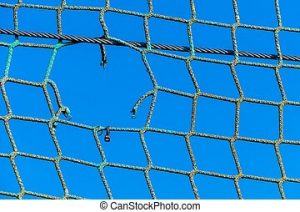At our 10.30 service today, Nerys will be joined by Pam Martin, a lay minister who works with young families at the parish church in Levens in South Cumbria and who has been involved for many years in organising environmental action with the charity A Rocha.
Pam writes: The situation we find ourselves in today is very serious indeed. The web of life of which we as human beings are an integral part is broken. By that I mean that because of the loss of biodiversity through habitat destruction, climate change, the use of chemicals in agriculture, pollution etc, a number of species of flora and fauna are now extinct, and the rate of extinctions is accelerating exponentially. In the UK, one of the most nature-depleted countries in the world, 15% of species face imminent extinction. Because of the interdependence of all parts of the web of life, even one becoming extinct can have the effect of weakening the species to which it was linked – and that may then lead to their extinction.

I find it helpful to have a visual symbol for this. In the image above you can see that one point of connection has broken and the threads that linked it to the surrounding 4 points of connection are hanging loose. In the natural world this might translate into the loss of a food source, for example, or some toxic influence. It seems incredible, but the loss of a small insect might have an impact on our lives, for example if we don’t take urgent action to save our bees, we shall have serious problems with food production, since they offer the critical service of pollination.
The two big issues we need to address in all aspects of our lives are climate change and biodiversity loss, both of which are getting worse year on year. As Christians, we are the people who profess a creator God. We are the people who were given the two great commandments, to love God and love our neighbour. If we love God we must love and protect what God loves and we know from the creation story in Genesis that God was very pleased with what he had created.
We also know that climate change, in particular, is affecting the poorest people in the world disproportionately and they are the very people who have contributed least to the truly dangerous situation in which we find ourselves. They are our neighbours. We need to show that we love them by living in a way that helps to reverse the damage to the natural world.
One of my favourite Christian poets – Gideon Heugh – puts it like this.
I stand outside the barred church doors
hammering with my fists
while around me the world dies.
I don’t want to be let in,
but pray for those inside
to come out and join the fight.
It is our Christian duty to stand up and be counted.
Our readings today were not written with the environment specifically in mind. The Old Testament passage, Deuteronomy 30.15-20, depicts the time when Moses was leading the children of Israel back from slavery in Egypt to the promised land. Psalm 1 speaks of the joy to be found in following God’s commandments. And the Gospel, Luke 14.25-35, indicates that being a disciple of Jesus is never easy. We are challenged to live counter-culturally as we follow the great commandment: Love God with all your heart and your neighbour as yourself.
They do, however, have something to say to us in our current environmental crisis, so let me pick out some verses from all three readings so that we can consider them in the context of creation care. Just take a moment of quiet to focus on the climate crisis and run-away extinction …
Today I am giving you the choice between good and evil. I am giving you the choice between life and death. Choose life!
Love the Lord your God, obey him and be faithful to him, then you and your descendants will live long in the land that he promised to give your ancestors. The command I am giving you is not difficult or beyond your reach.
Happy are those who find joy in obeying the law of the Lord. They are like trees that grow beside the stream, that bear fruit at the right time and whose leaves don’t dry up.
None of you can be my disciples unless you give up everything you have.
These verses sound just as if they had been written for our times don’t they!
Do you sometimes listen to the news and feel that things are so bad that there is nothing you can do to make a difference? If this is true of you, you’re certainly not alone. But we need to remember the words from Deuteronomy, ‘The command I’m giving you is not difficult or beyond your reach’ and Jesus’ words to his disciples, ‘I came to give you life in all its fullness.’ And we need to remember that lots of little actions can build into something huge. And the more people who take small steps the greater the effect. Here is a little story that exemplifies this.
An elderly man was walking along a beach early in the morning and saw a figure ahead of him who appeared to be dancing. As he drew nearer he saw that is was a young woman. She wasn’t dancing – but bending down to pick up starfish and throw them gently back into the sea. “Young woman, what are you doing?” “Well the sun is up and the tide is going out and unless I throw these star fish back into the ocean they will die.” “But do you not realise, there are miles and miles of beach – and star fish all along it. You can’t possibly make a difference.” The young woman listened politely to what he said. Then she bent down and picked up another starfish and very gently threw it back into the surf and watched as it escaped into deeper water. “Well it made a difference to that one.”

So how do we cope with what lies ahead? What do we need to do? And where do we start? Well first and foremost we need to pray and encourage others to pray. Then we need to chip away at the long list of small steps we can take that will eventually add up to making a significant contribution to the healing of God’s creation. We must hold our politicians to account and make it clear what we expect them to do.
And we must not allow the enormity of the task to overwhelm us. We must not keep looking back to our younger days when everything seemed much simpler. We must keep looking forward and we must step outside our comfort zones to stand up and be counted.
Once again Gideon Heugh has just the right words to challenge us and spur us into action.
The Prophet
I wonder why you brought me to these splintering days,
this age of earth-death and default extinction
and the smothering of constellations.
Nostalgia claws at me, screaming: send me back!
Then I sense a fire that doesn’t consume,
a cloud of breath-taking holiness
passing across the face of a mountain and it says
‘I put you here to see, to see and hear and feel the agony,
I needed someone whose heart would break,
who would fall to their knees screaming
Send me!’
May it be so for each of us from today. May we live our lives with renewed vigour, ready and willing to do what is necessary to protect and heal God’s creation, in Jesus’ name. Amen.

The name A Rocha is Portuguese for ‘The Rock’. This is because the charity started in Portugal where Rev’d Dave Bookless came across it when he was on holiday. He was very impressed with what he saw and brought the charity to the UK about 20 years ago.
A Rocha is a Christian environmental charity. Its aim is the protection, conservation and restoration of the natural world and the equipping of Christians to care for God’s creation. A Rocha works with churches through its Eco Church programme, with Church leaders through its interdenominational convening work, with individuals and families through the Wild Christian programme and with land managers through the Partners in Action Network.
For more information visit www.arocha.org.uk






